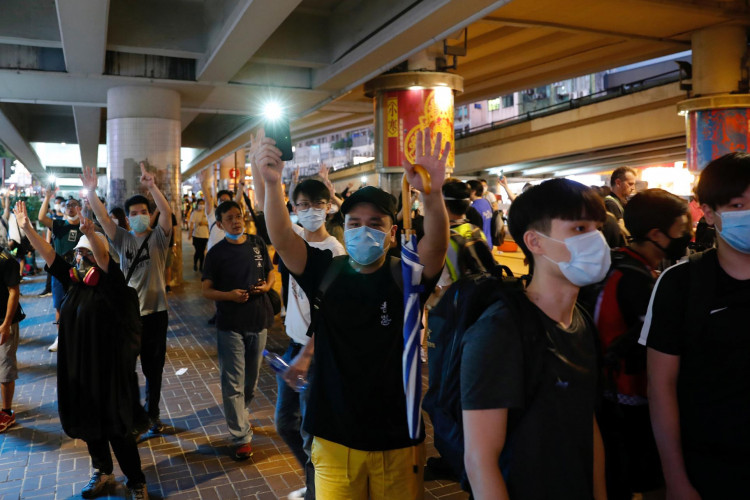Riot police fired water cannons and tear gas as demonstrators defied physical distancing protocols to go back to the streets and unleash their frustration at China's attempt to implement a new national security law in Hong Kong.
A massive crowd comprised mostly of young people started to assemble Sunday at around noon in Causeway Bay's shopping area, heeding calls on the internet to scale up protest against Beijing's ruling Communist Party following months of inactivity amid a global health crisis.
The demonstrators conducted their biggest rally after Beijing's move to deal with the resistance in the semi-autonomous financial hub, with more protests expected in the coming days.
Authorities said the protesters threw water bottles and other objects at them as they massed up in an illegal assembly. Around 180 people were apprehended, while at least four police press liaison team members were wounded, the police disclosed.
Carrie Lam, Hong Kong's leader who is viewed as a key figure in the pro-Beijing political movement, has vowed full support for the new security proposal and stated the city's sovereign rights will not be violated.
China has allayed fears the security legislation would endanger Hong Kong's foreign investors and lambasted nations it said did not have to interfere on the issue.
"The demonstration is the first large one in Hong Kong since COVID-19 arrived here," Adrian Brown of Al Jazeera, reporting from a protest site, disclosed. The protesters, Brown said, are not only defying social distancing policies, they are also "defying an order by Hong Kong's police not to engage in this unauthorized assembly."
The demonstrations reflect an escalation of long-standing frictions between pro-democracy rioters and the Chinese government at a very sensitive political period in the city.
Over 8,400 people have been taken into custody in Hong Kong by police since pro-democracy rallies broke out in 2019. For most of the rioters, Sunday's mass gathering was perceived as a litmus test: the demonstrators wanted to see how the police force would respond to large-scale protests after months of hiatus.
Still, the unrest were relatively restrained, compared to violent clashes that highlighted the later months of rallies in the bustling city last year. Hong Kong's government previously tried to impose security measures in 2003 but had a change of heart after the protests.
The forthcoming security law has been crafted after Hong Kong was jolted last year by months of heavy and often violent demonstrations triggered by opposition to a now-scrapped regulation to extradite criminal suspects for trial in mainland China.





